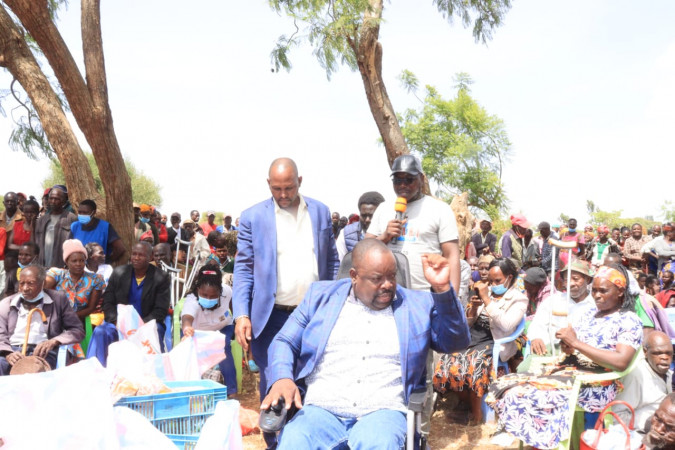PWDs call on IEBC to prepare special voting machines for them during August polls
By Dorcas.Mbatia, March 6, 2022The Independent Electoral and Boundaries Commission (IEBC) has been urged to adequately prepare and provide special voting machines for people living with disability (PWDs) ahead of the August 9th general election.
Speaking yesterday, Meru County PWDs chairman Mike Makarina claimed that in the past elections many disabled persons have failed to cast their vote due to lack of various disability-friendly facilities and resources to enhance them exercise their democratic rights.
While issuing foodstuff donated by Director of Criminal Investigation George Kinoti and other well-wishers to various disabled persons in Tigania East and West sub-counties, Makarina blamed the IEBC for not fully considering the PWDs in the electoral process for many years.
” Disabled persons should not be treated as ‘second-class’ citizens. They have their right to participate in elections and chose their leaders however the commission has not invested well in special machines and aids in making the exercise easy for them,” the chairman said.
He added that the commission should collaborate with the government and other stakeholders to ensure people with mobility, visual and hearing impairment use special voting machines which do not require paperwork and are equipped with earphones and other modifications to suit their handicap.
While addressing various groups, the chairman at the same time accused the commission of failing to deploy well-trained personnel and officers who can handle and assist PWDs for the exercise.
” Some returning officers and clerks are not trained on how to handle disabled persons. Some are not friendly to them, what we need is the commission to employ professionals on matters of special needs in every polling station across the country. This is to ensure that the about a million Kenyans population living with disabilities can exercise their rights,” he added.
At the same time, he challenged the National Council for Persons With Disability (NCPWD) to ensure the law is followed to safeguard the democratic rights of PWDs in a bid to enhance trust and credibility in the electoral process
“The government and NCPWD should collaborate with the local administrations to ensure that disabled persons are provided with transport at the polling stations because many will require the assistance of being aided by parents and guardians which sometimes it a burden to them and that how many end up not voting,” Makarina said.
More Articles

